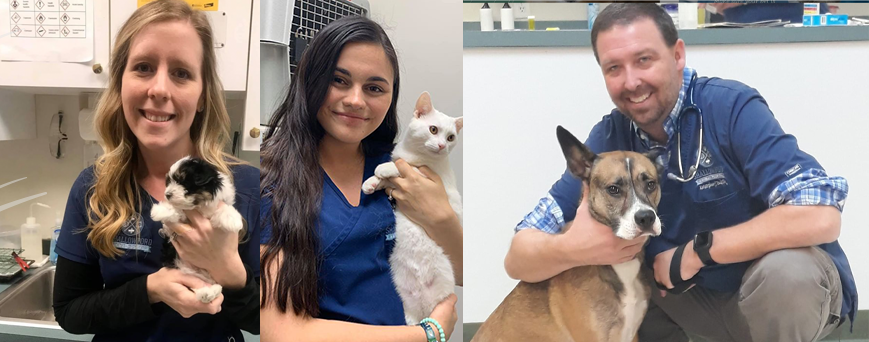Enhancing Well-Being with Pet Exams in Lewisville, NC
At Shallowford Animal Hospital in Lewisville, we know how important your pet is to your family. They’re your best friend, work out buddy, and cuddle bug. Although they live fewer years than we do, our goal is to prolong their life with preventive medicine so you can enjoy many more years with them. Annual pet exams are strongly encouraged so we can stay on top of their changing needs and address any problems quickly and effectively.

Making Your Pet’s Health Our Priority
With annual pet exams, we’re able to develop a baseline for your pet’s health that allows us to more easily detect subtle signs of illness in the future. Early detection is key to your pet’s lasting well-being. It helps us treat illnesses before they have time to progress, which means less stress on your pet (and your wallet). At every pet exam, we’ll perform a comprehensive evaluation of your cat’s or dog’s health to ensure we don’t miss anything.
Your pet’s exam may include any or all of the following:
- Physical nose-to-tail exam
- Age-appropriate blood work
- Fecal exam
- Vaccinations
- Parasite prevention
- Heartworm and tick-borne disease screening
- Urinalysis
- Nutritional counseling


Protecting Pets from Parasites
Parasites such as fleas, ticks, heartworms, and intestinal worms are dangerous to your pet’s well-being. These critters are especially prevalent in our mild North Carolina climate, so it’s essential that you keep up the parasite prevention all year long. At Shallowford Animal Hospital, we can help you choose the best flea, tick, and heartworm preventative medication for your pet.
But what are these critters, and what dangers do they pose?
Fleas live and feed on your pet’s blood. In sensitive pets, they can cause a severe allergic reaction called flea allergy dermatitis. These pests can also carry tapeworm larvae as well as Bartonella, or “cat scratch disease.” Both are also transmissible to your human family.
Ticks are a growing concern in many parts of the country, including Lewisville, NC. Ticks are often found in wooded areas, but can get as close to home as your backyard. When a tick bites, it stays latched on until it is fully engorged. It is during this prolonged feeding that they can pass on dangerous tick-borne diseases like Lyme disease.
Heartworms are internal parasites transmitted through the bite of an infected mosquito. Heartworms lodge themselves in the heart and blood vessels around the lungs. There, they grow, mature, and multiply. Over time, they can cause a lot of damage to your pet’s heart and lungs, causing irreversible damage. In dogs, heartworm disease is treatable, but very difficult and costly. For cats, there is no cure.
Intestinal worms include roundworms, whipworms, tapeworms, and hookworms. Other common intestinal parasites include coccidia and giardia. These parasites are often transmitted through contact with an infected animal’s feces. While they typically cause mild symptoms in healthy dogs, compromised pets can experience severe weight loss, anemia, and even death. All of these parasites can also be transmitted to your human family.

